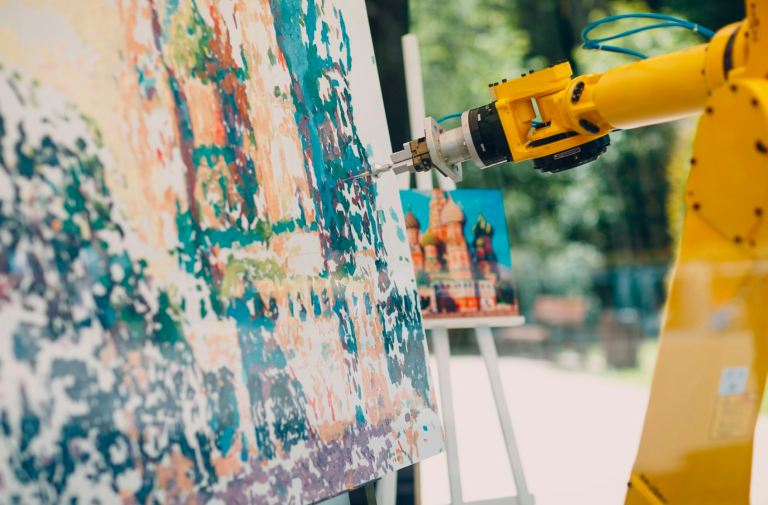The Impact of AI on the Manufacturing Industry
As the world stands on the brink of the Fourth Industrial Revolution, artificial intelligence (AI) is becoming an
integral part of the manufacturing industry. From predictive maintenance to intelligent automation, AI has
transformed traditional manufacturing processes, leading to increased efficiency and productivity. In this blog
post, we will explore how AI is reshaping the manufacturing landscape, offering actionable insights and
statistics to help industry leaders navigate this technological transformation.
Understanding AI and Its Role in Manufacturing
Artificial intelligence refers to the simulation of human intelligence processes by machines, particularly
computer systems. In the manufacturing sector, AI is leveraged to optimize processes, enhance
product quality, and minimize downtime. According to a report by PwC, AI could contribute up to $15.7 trillion
to the global economy by 2030, with a significant portion of this growth attributed to the manufacturing
industry.
1. Intelligent Automation and Robotics
AI-driven automation and robotics are revolutionizing manufacturing floors worldwide. Collaborative robots
(cobots), powered by AI, can work alongside humans, performing repetitive and hazardous tasks with precision and
consistency. A study by the International Federation of Robotics (IFR) highlights that the global stock of
industrial robots is expected to reach over 3 million units by 2022, underscoring the rapid adoption of robotics
in manufacturing.
2. Predictive Maintenance and Reduced Downtime
One of the most significant benefits of AI in manufacturing is predictive maintenance. AI algorithms analyze data
from sensors embedded in machinery to predict failures before they occur. This approach minimizes unplanned
downtime, reduces maintenance costs, and extends the lifespan of equipment. General Electric (GE) has reported
saving $1.5 billion annually through predictive maintenance solutions.
Enhancing Product Quality and Customization
AI technologies enable manufacturers to improve product quality and offer greater customization options to meet
customer demands. By analyzing vast amounts of data, AI can detect defects in products at early stages,
ensuring that only high-quality goods reach the market.
1. Quality Control through AI Inspection
AI-powered visual inspection systems are capable of identifying defects with greater accuracy than human
inspectors. For example, automotive companies are using AI to inspect paint finishes, ensuring flawless
surfaces. According to McKinsey, AI-based quality control can reduce defect rates by up to 90%, leading to
significant cost savings for manufacturers.
2. Mass Customization with AI
AI facilitates mass customization by allowing manufacturers to produce bespoke products without compromising
efficiency. Nike, for instance, uses AI to analyze customer preferences and trends, enabling them to offer
personalized products at scale. This level of customization is becoming a key differentiator in the competitive
manufacturing landscape.
Supply Chain Optimization and Efficiency
The integration of AI in the supply chain enhances visibility, reduces lead times, and optimizes inventory
management. AI-powered supply chain solutions help manufacturers anticipate demand fluctuations and respond
proactively.
1. Demand Forecasting and Inventory Management
AI algorithms process historical sales data and external factors like market trends and weather patterns to
accurately forecast demand. This capability allows manufacturers to maintain optimal inventory levels, reducing
excess stock and minimizing storage costs. A study by Accenture found that AI-driven supply chain management can
increase sales by up to 10% and reduce inventory levels by 20%.
2. Enhancing Supplier Relationships
AI tools facilitate better communication and collaboration with suppliers. By analyzing supplier performance and
risks, manufacturers can make informed decisions, ensuring a reliable and efficient supply chain. Companies like
Unilever are leveraging AI to enhance supplier relationships, resulting in improved delivery times and reduced
operational risks.
Challenges and Considerations in AI Adoption
While AI offers numerous benefits, its adoption in manufacturing is not without challenges. Manufacturers must
address issues such as data privacy, workforce reskilling, and initial investment costs to fully capitalize on
AI technologies.
1. Data Privacy and Security Concerns
As AI relies heavily on data, ensuring data privacy and security is paramount. Manufacturers must implement
robust cybersecurity measures to protect sensitive information and prevent data breaches. Adopting
industry-standard protocols and educating employees about data security can mitigate potential risks.
2. Workforce Reskilling and Adaptation
The integration of AI in manufacturing necessitates reskilling the workforce to work alongside advanced
technologies. Companies should invest in training programs to equip their employees with the necessary skills to
operate AI-driven machinery. Collaboration between industry and educational institutions can facilitate
effective reskilling initiatives.
Conclusion: Embracing the AI-Driven Future
The impact of AI on the manufacturing industry is profound, driving unprecedented levels of
efficiency, quality, and innovation. By embracing AI, manufacturers can gain a competitive edge in a rapidly
evolving market. However, to fully realize the potential of AI, industry leaders must address the challenges
associated with its adoption. By prioritizing data security, investing in workforce development, and fostering a
culture of innovation, manufacturers can harness the power of AI to shape a brighter and more sustainable
future.


